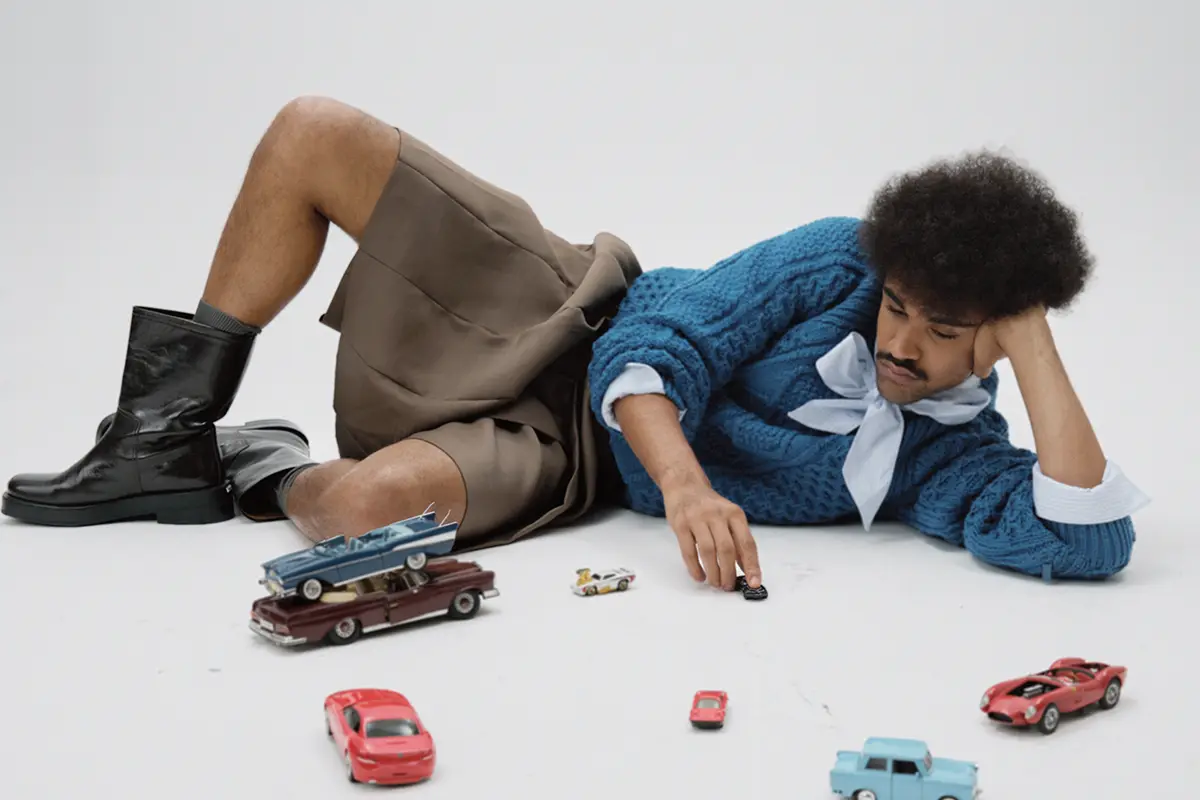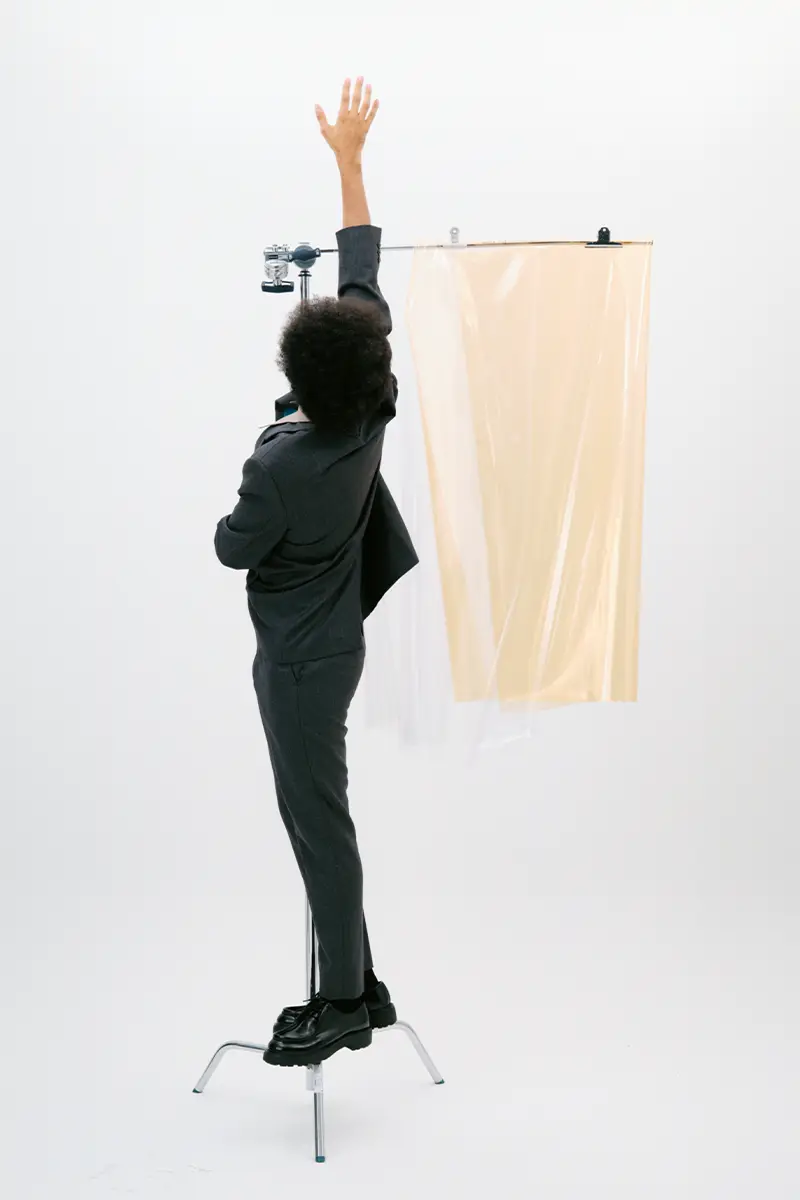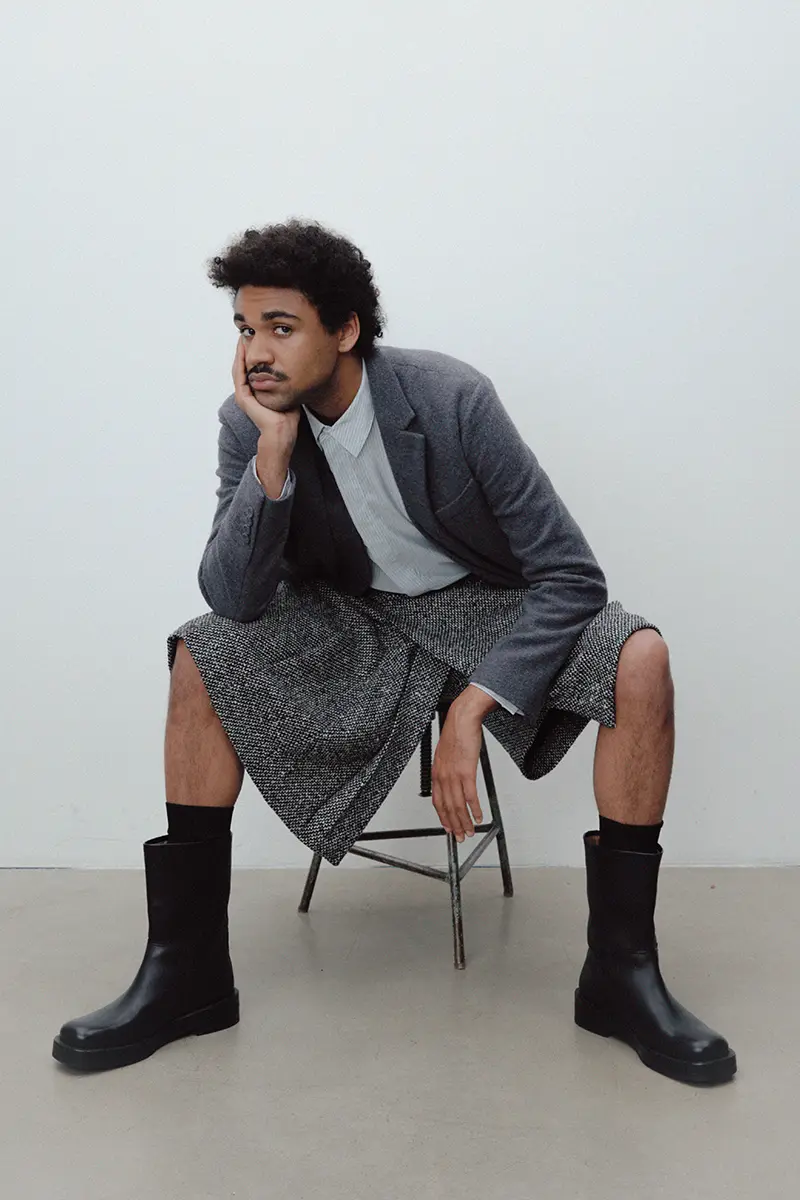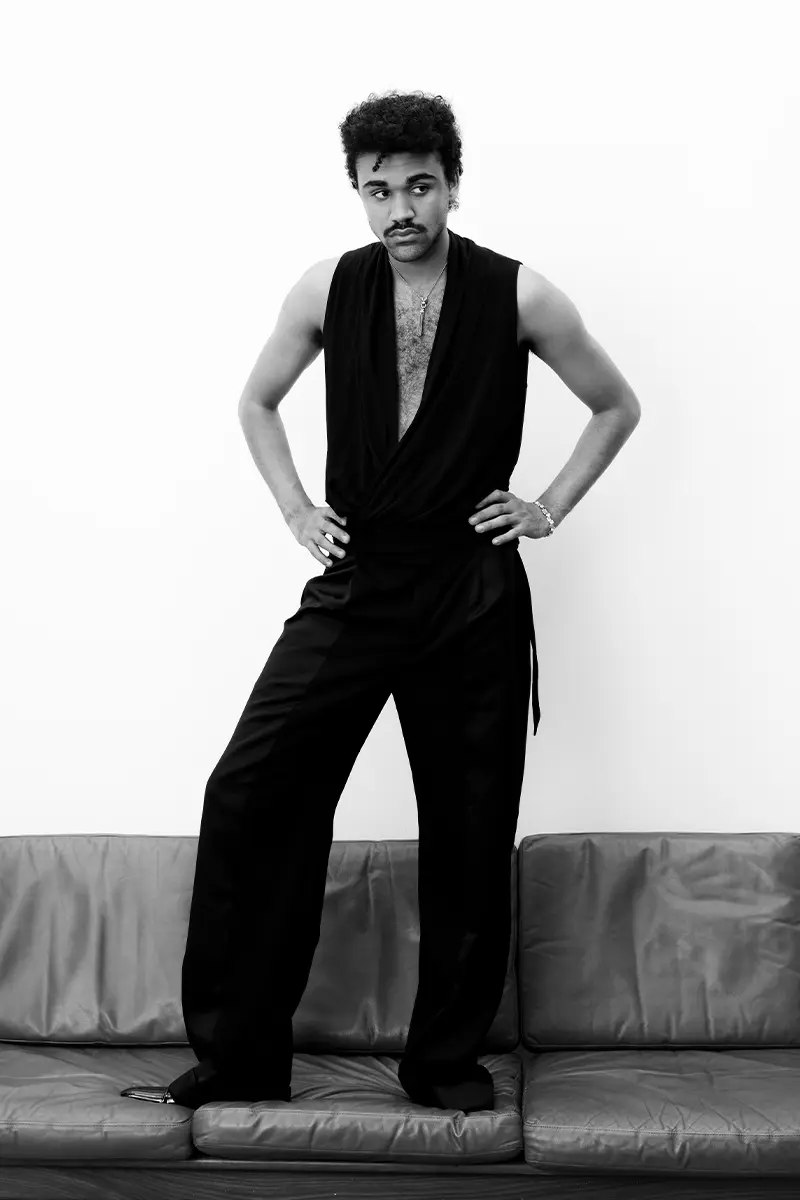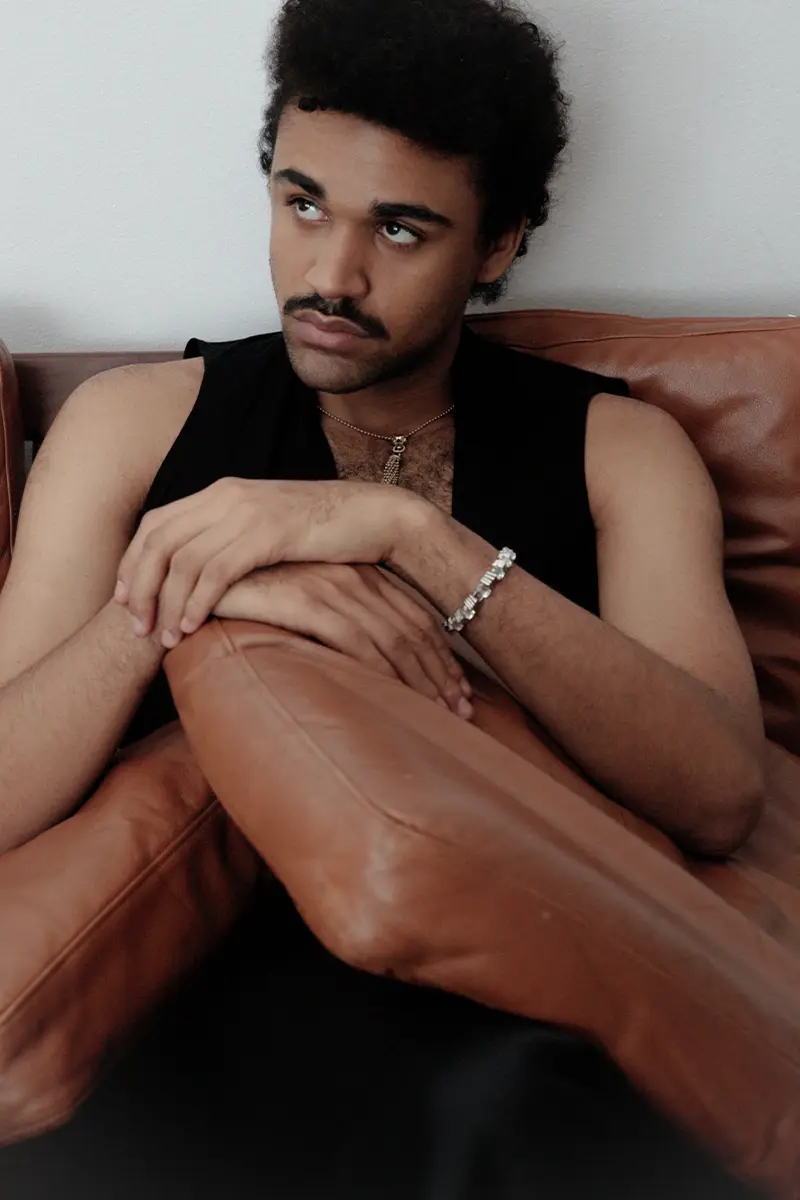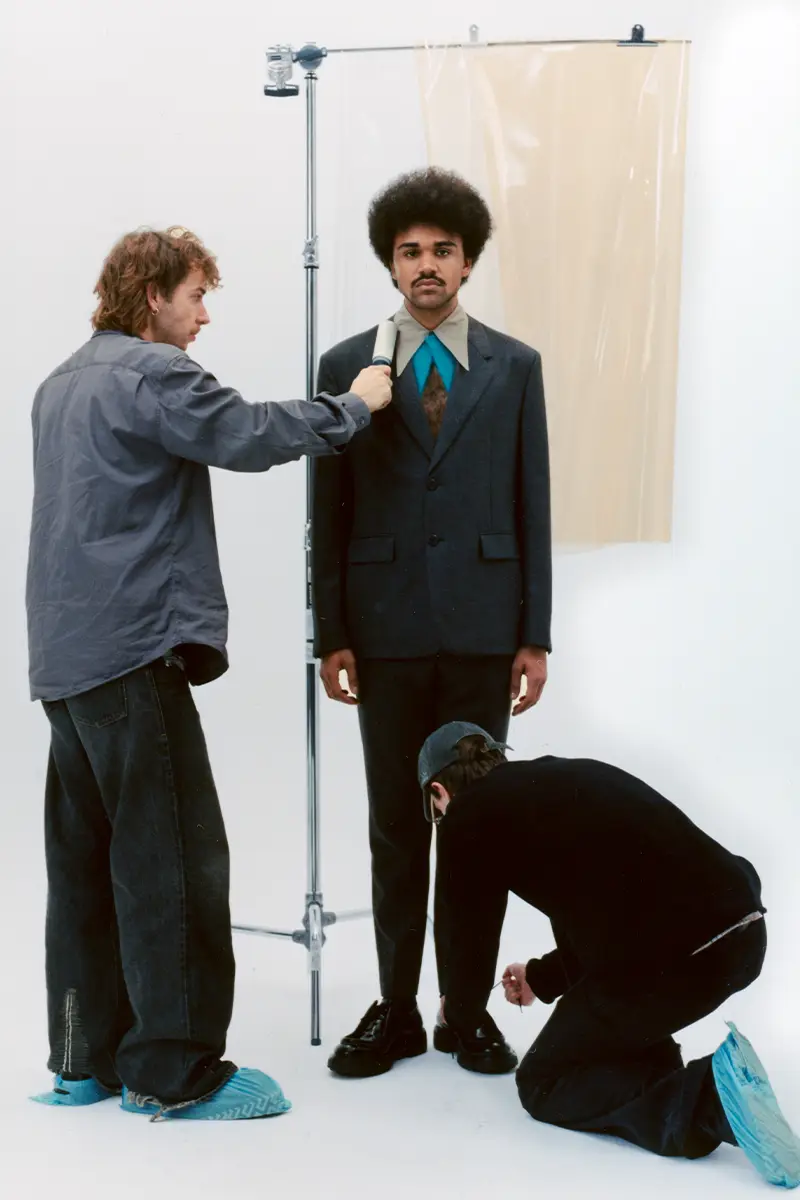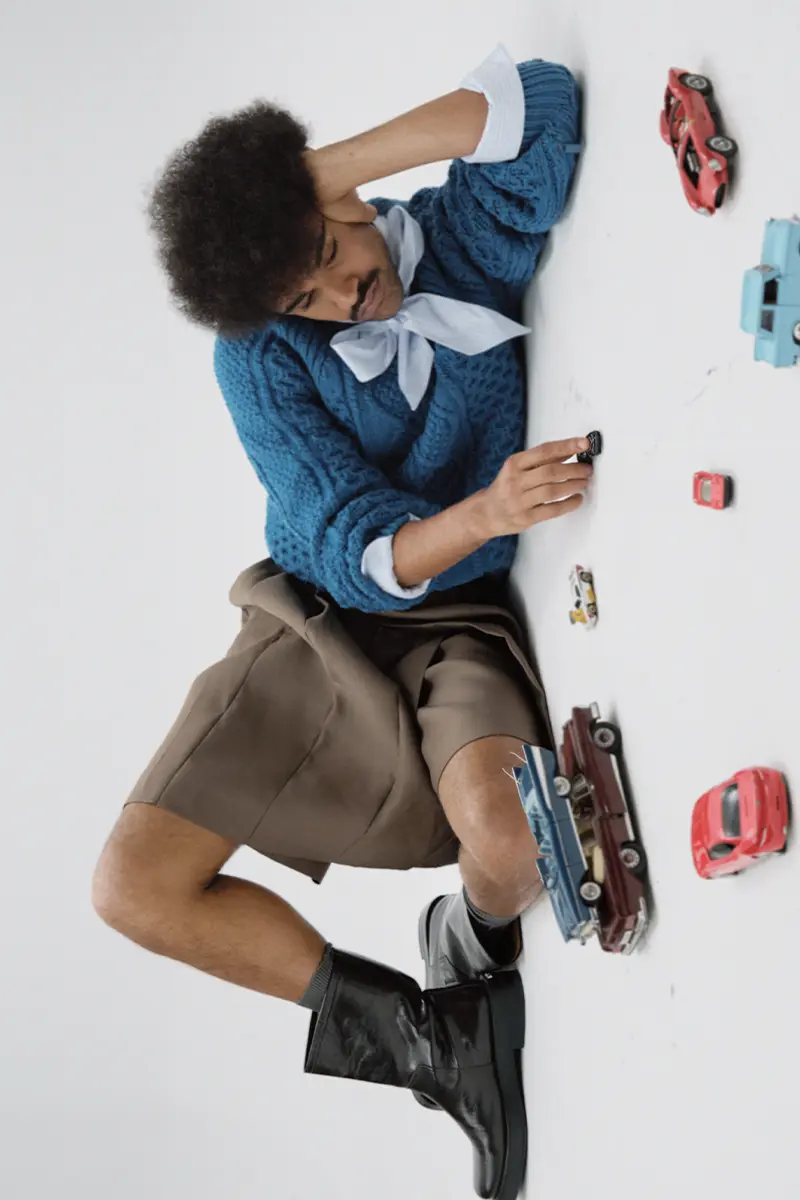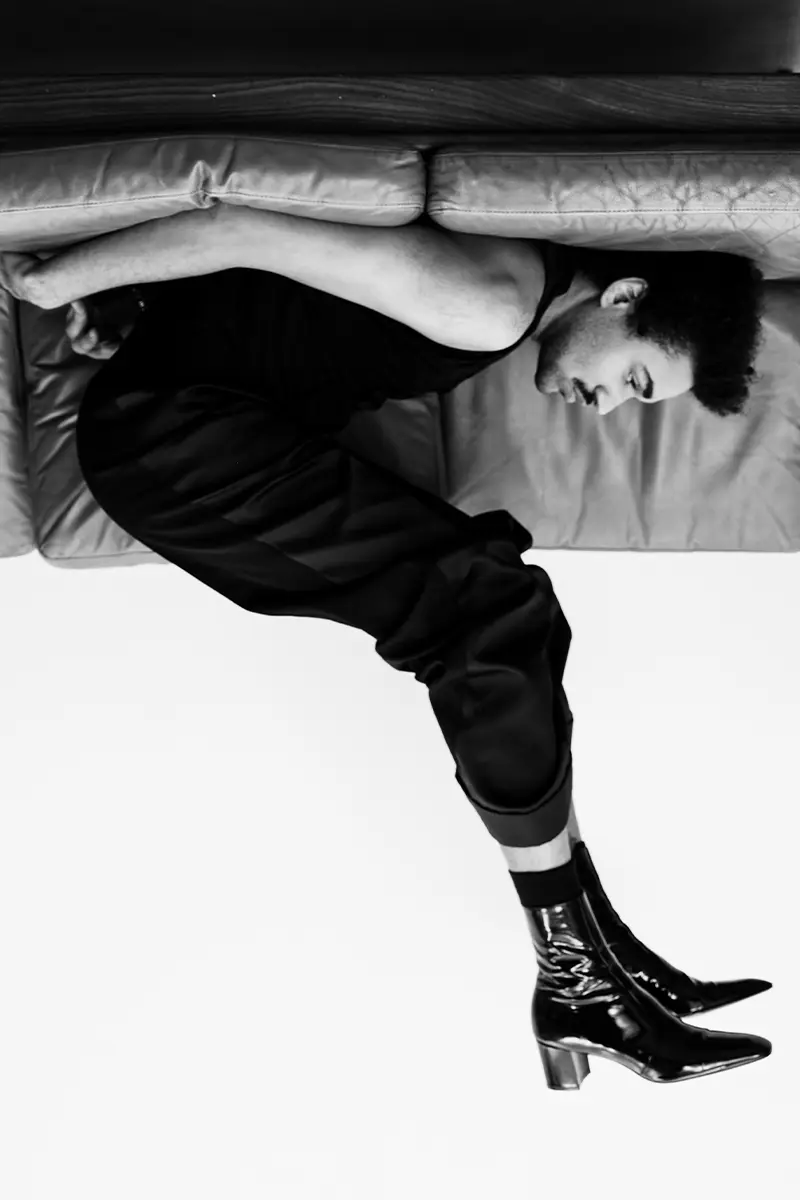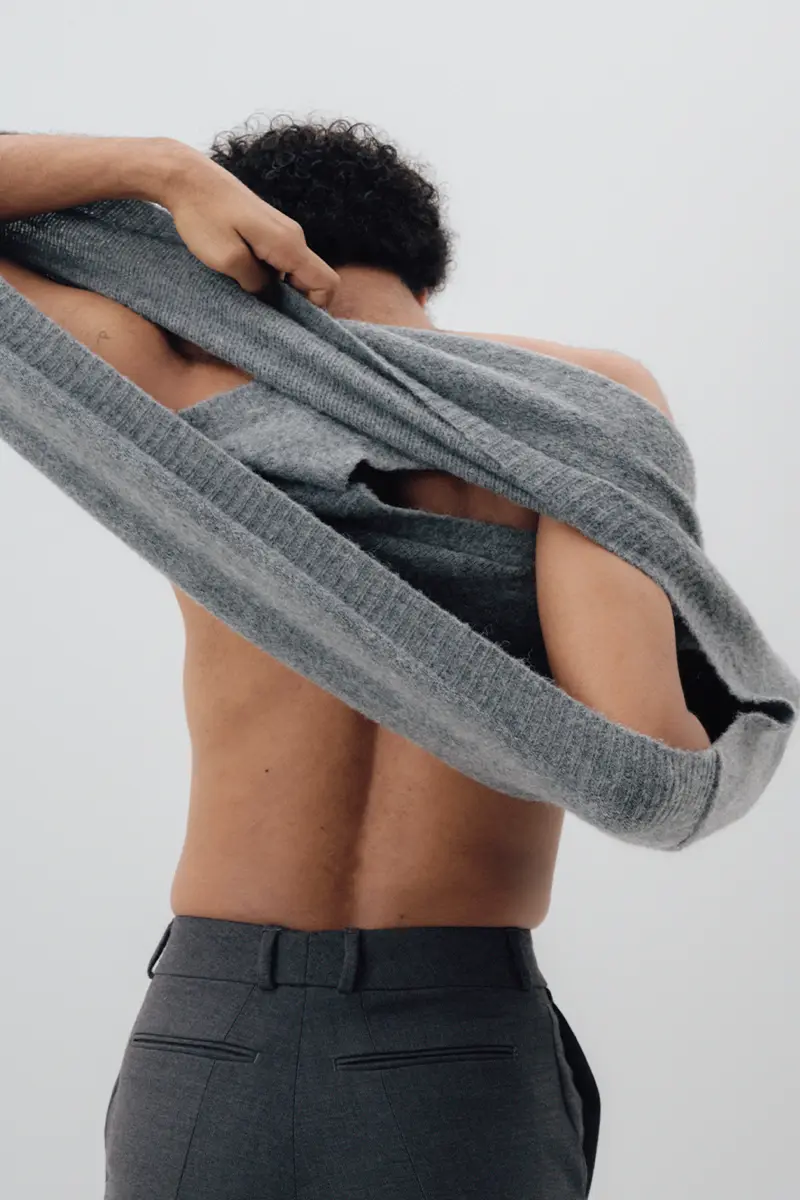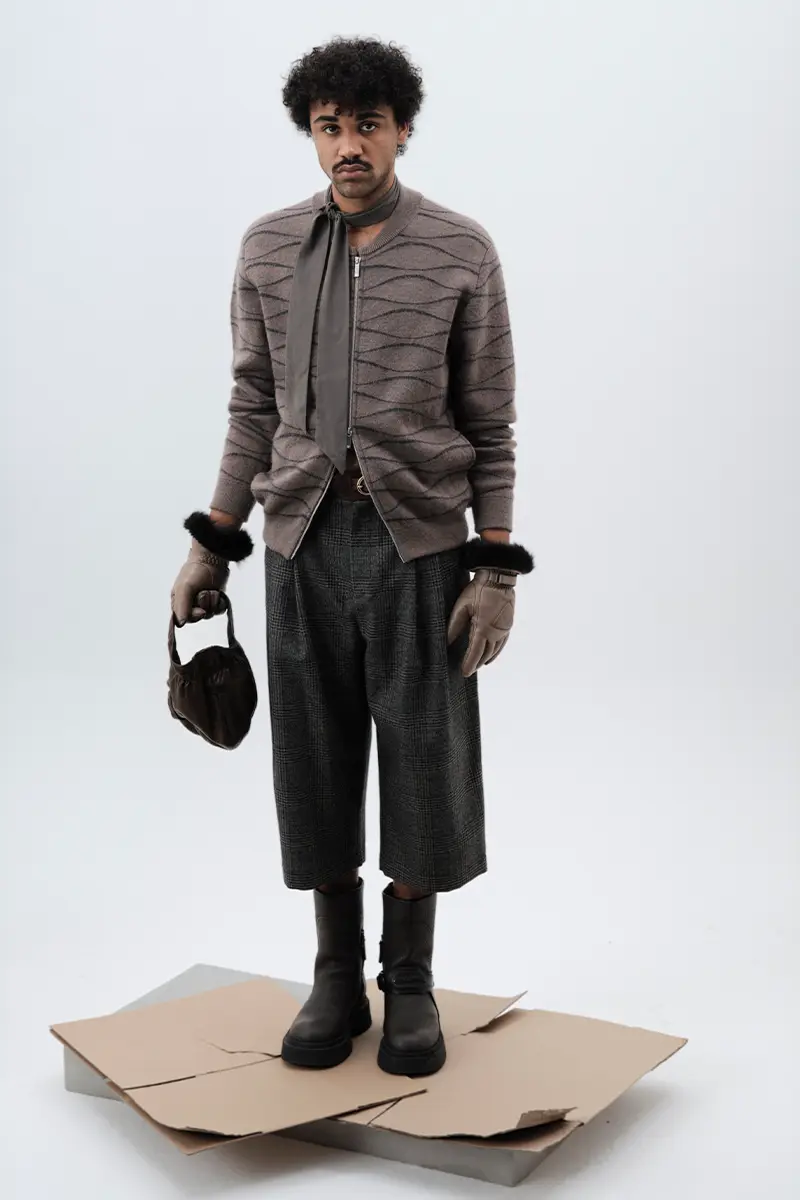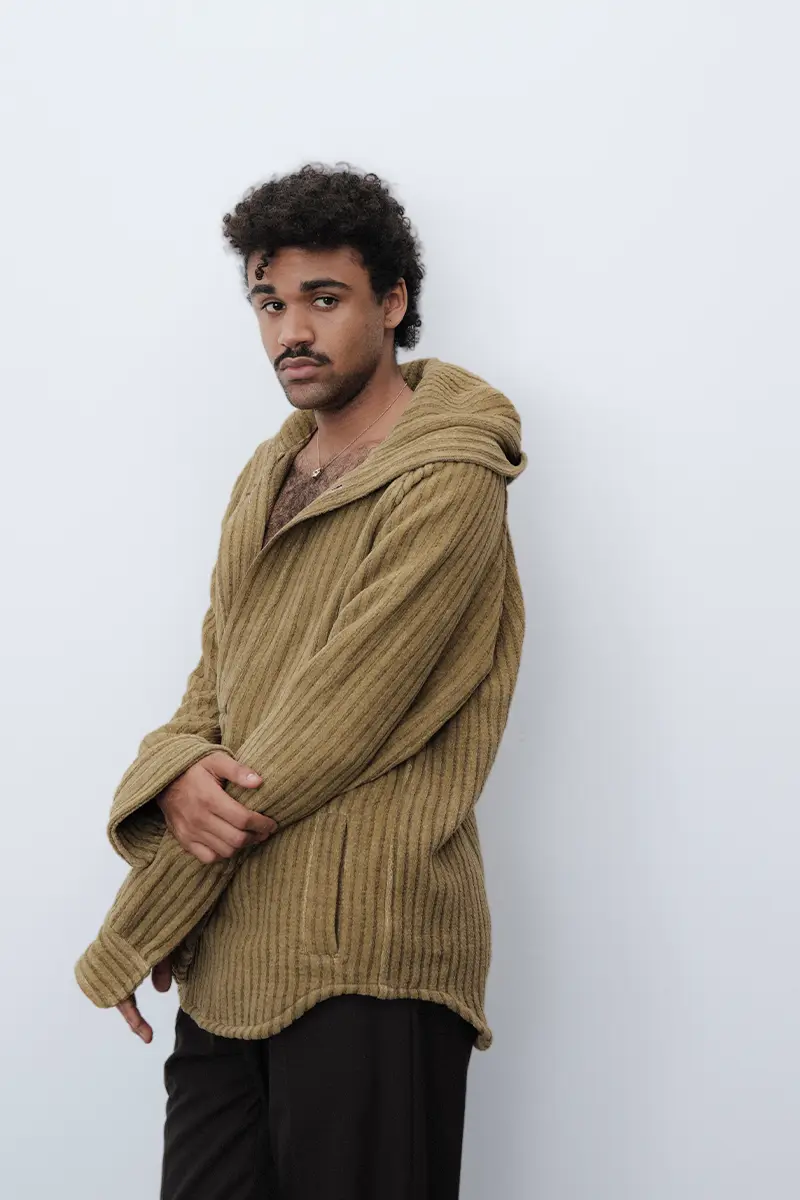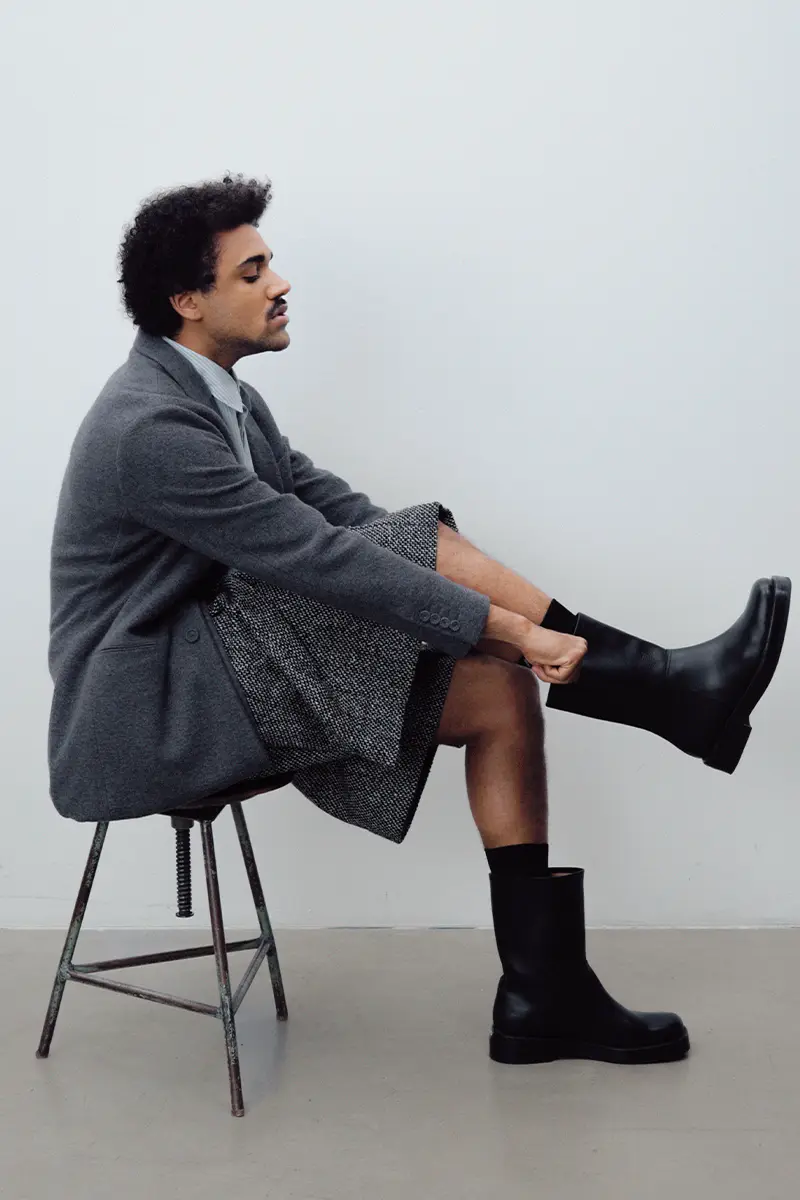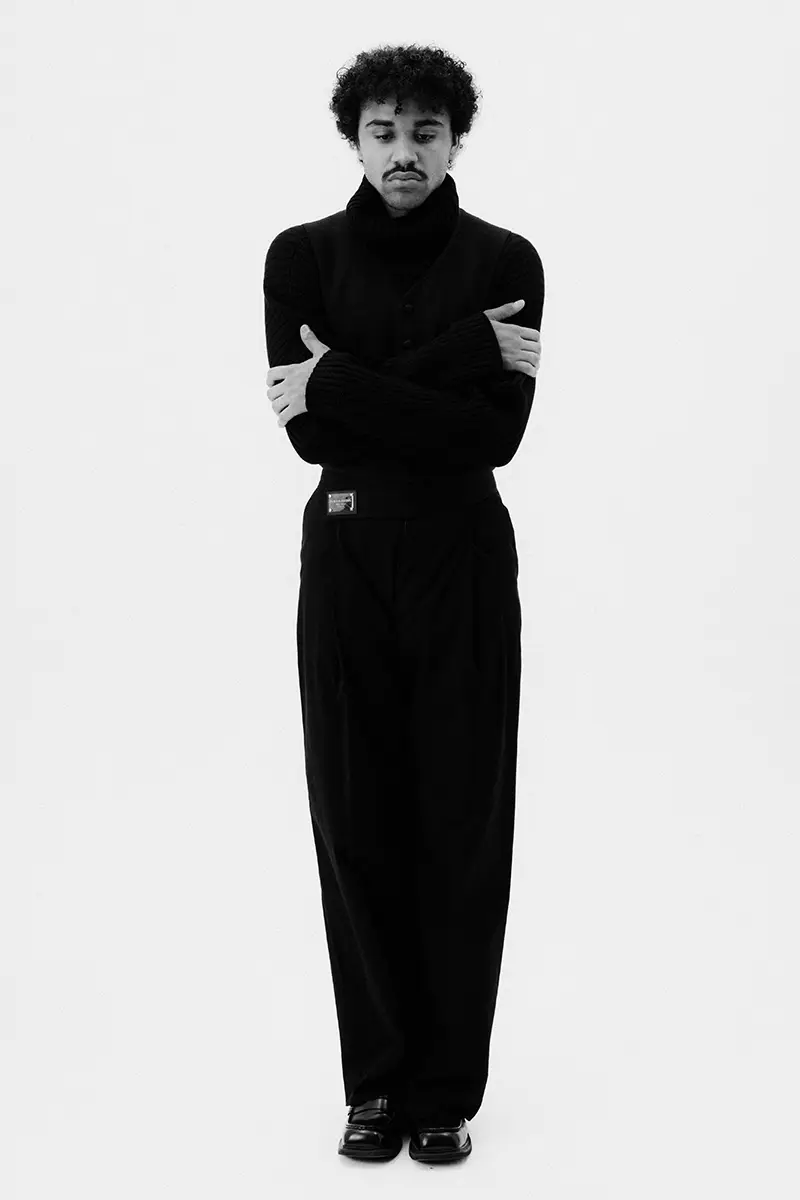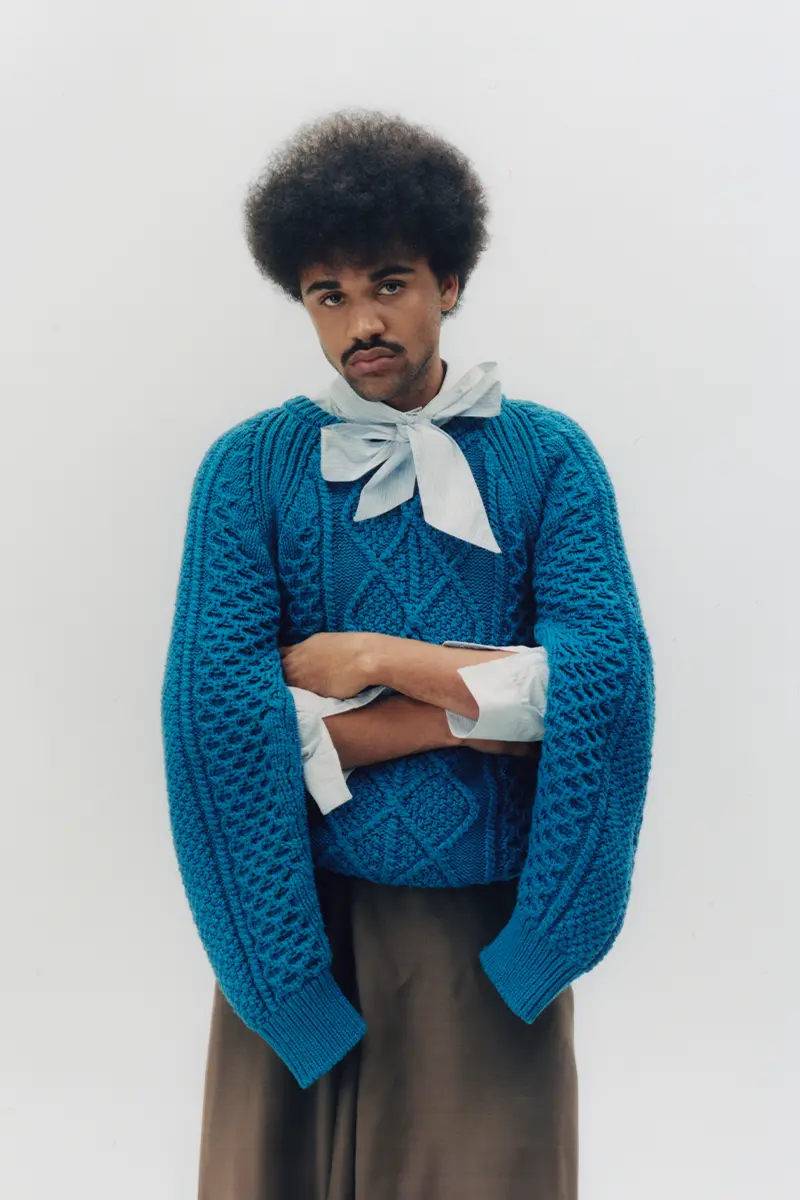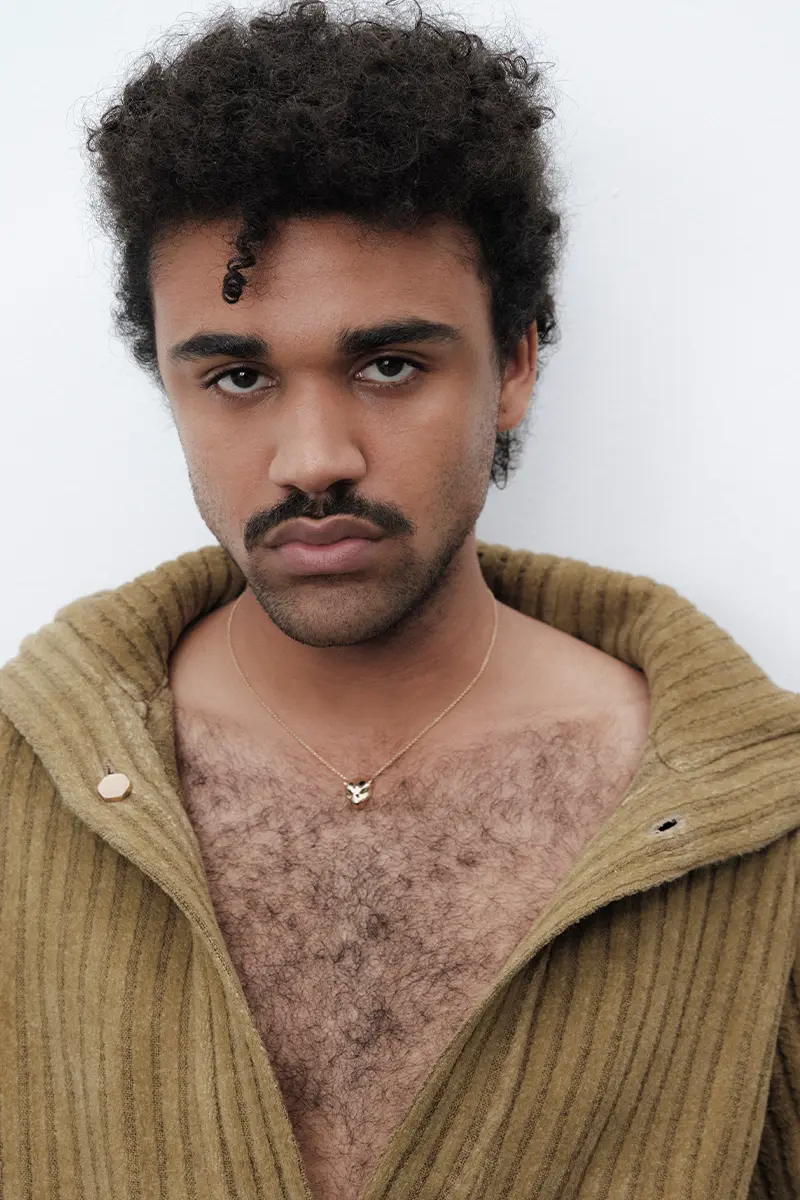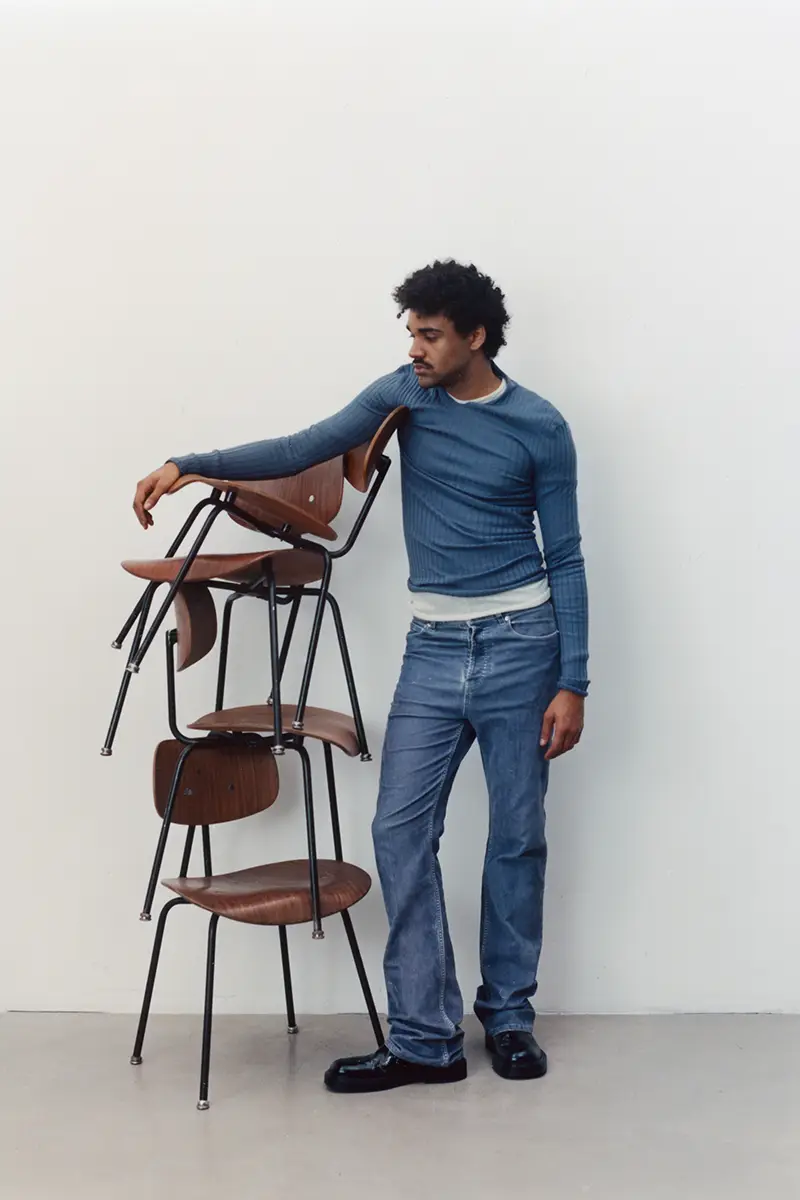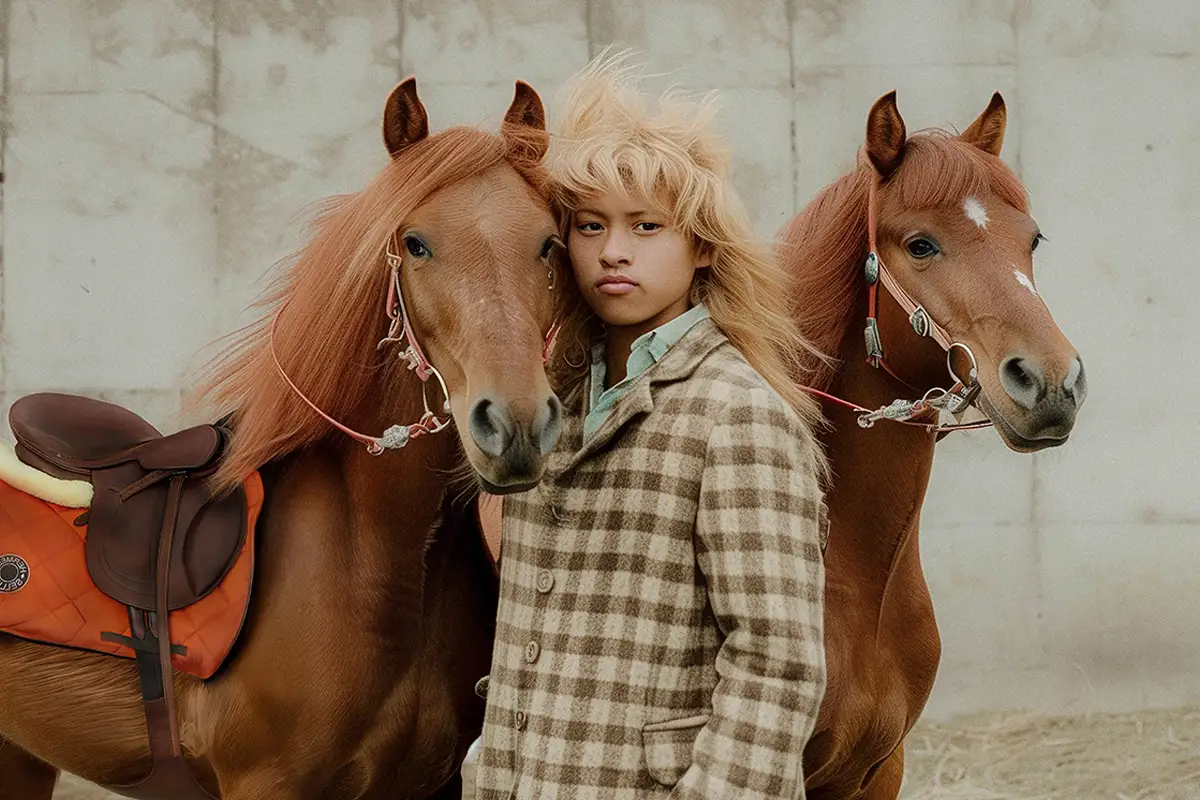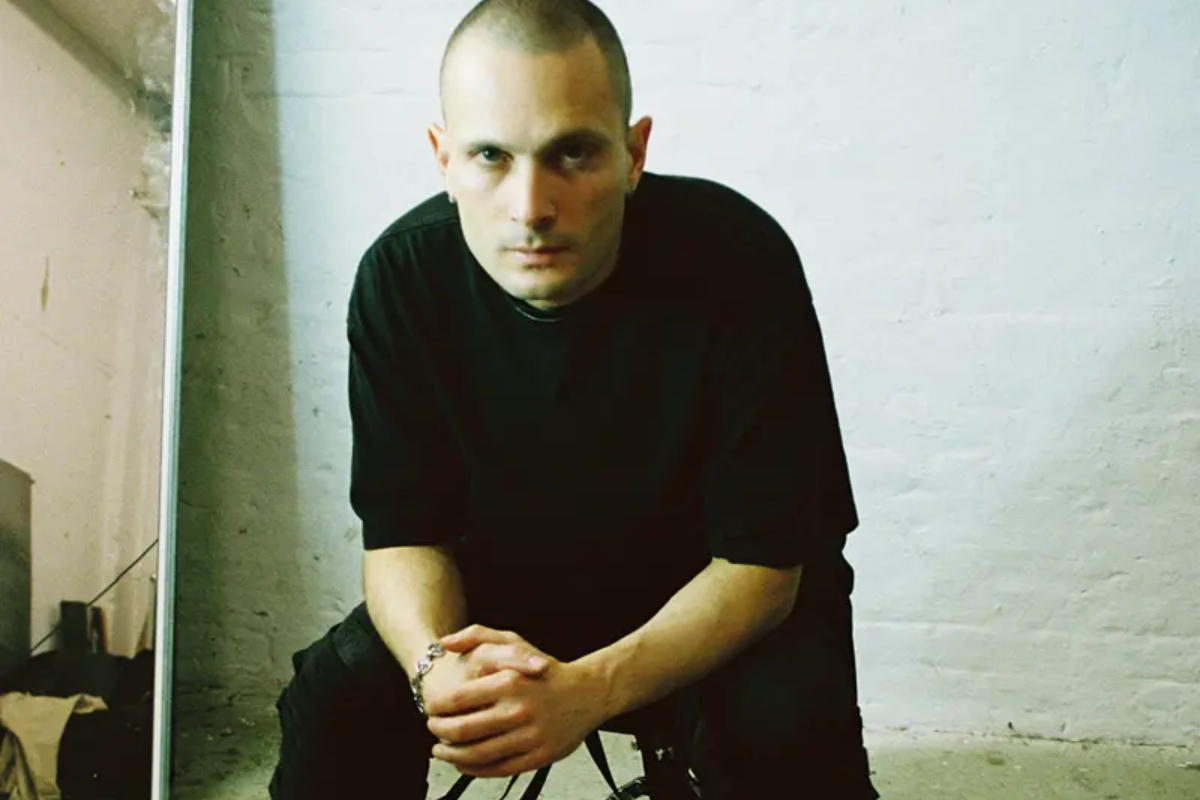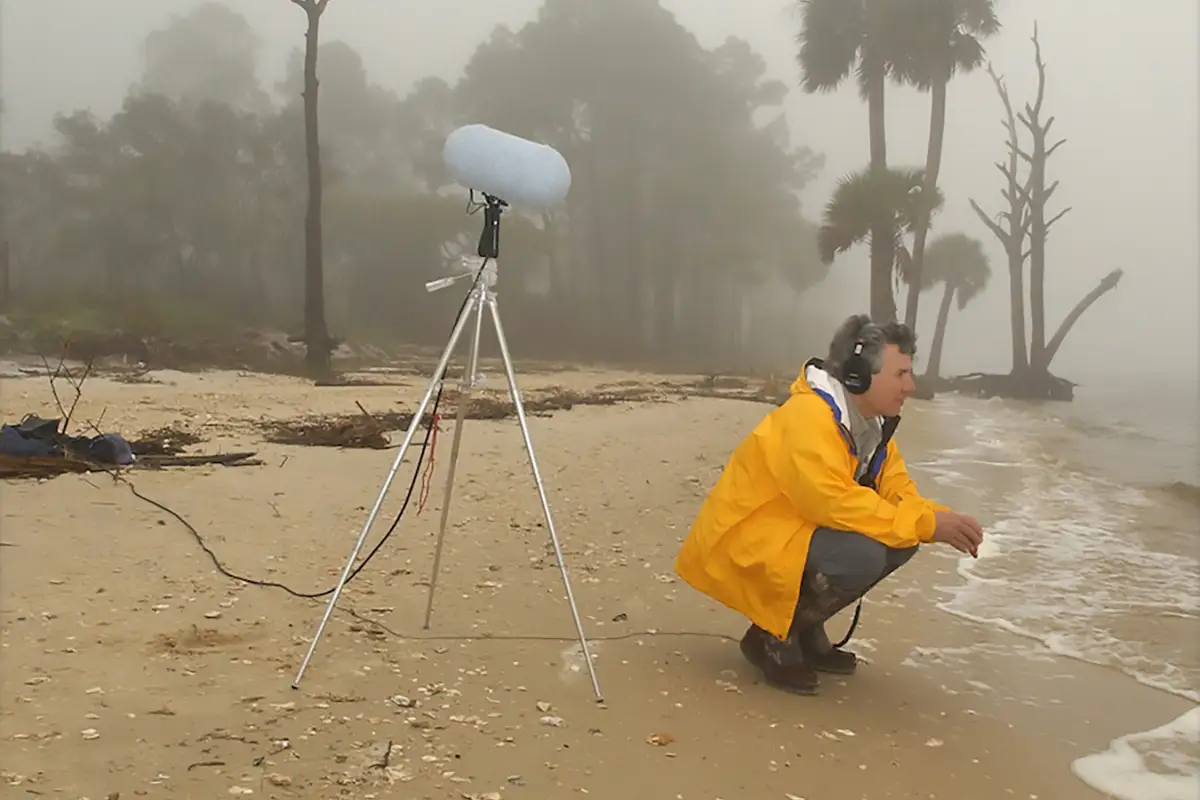Films are made in consortium. Langston Uibel discusses processes of collaboration and notions of artistic voice with the award winning actor
A sensitive to human fragility – Langston Uibel
Langston Uibel has large responsive eyes, sensitive to human fragility, light and the quiver of the smallest emotions. In his most recent film Afire, which was directed by Christian Petzold and won the Silver Bear at Berlinale, Uibel plays a budding photographer named Felix keen to produce an art school worthy portfolio of photos inspired by the water. He parries throughout against his foil, a writer named Leon (played by Thomas Schubert) who is convinced insipidity is the worst human quality and that Felix is guilty of it in the highest order.
The film unwraps itself through its relationships, although it is not at all mumblecore. The sympathetic cinematography casts its Baltic beachside setting in a sensual firelit glow. From the opening scene, there is tension. Felix and Leon have retreated to a seaside villa where they are confronted by Nadja and Devid, two lovers summering on the beach and working seasonal jobs.
The film narrates interpersonal tensions that arise between the group, and can feel isolated to its setting; initially the only intrusions are aural and unknown. Later in the film, a global setting is set and the micro begins to reach the global. It is not allegory but rather anecdotal, a brief passage sent the audience as an epistolary. Ultimately, we find human fragility in tension with a destabilizing ecology.
Langston Uibel is interested in the quieter tones
To the Petzold’s credit, Uibel notes that he felt the ensemble of five, «felt like a creative homecoming [for him] because [we] speak the same language creatively» and that Petzold, «gives enough space for each artist to kind of evolve and show the best side of themselves».
For him, the creative process does not begin with an actor transforming themself to surreptitiously fit an exaggerated form, but rather where a director acknowledges that every actor and artist «brings along so much just by being themselves».
For Uibel an interesting approach to acting is «to strip down these things that actors are attached to, and discover who they truly are». The creative process therfor does not begin with an actor transforming themself to surreptitiously fit an exaggerated form, but rather where a director acknowledges that every actor and artist «brings along so much just by being themselves».
Though he was a bit reticent over the phone to declare what it is he brings. For one, he is «always more interested than in the quieter tones» and that most of all, he is «quite a sensitive person interested in the fine lines that appear». For him, an actor must be sensitive to their own humanity as a means of conveying universal truths; the small truths are often more profound than the grandest exclamations.
Ultimately Afire finds a burning resolution. A film about art, Afire is also a provoking portrait of a world turning askew. Whether art mimics life or life art, if our world is changing, art must shift to accommodate its new territories. Redemption is a horizon, and whether it is reaching, each viewer must decide. It is a quiet end, yet a startling conclusion to a slow burn.
His virtue is his vulnerability, which has allowed him to move gracefully between streaming, theater, and cinema. In our interview, Uibel discusses his notions of collaboration and the role of the actor in the filmmaking process. Ultimately, his work speaks for itself, and this conversation may provide some gutters to his thought process.
Langston Uibel on his origins and recent work
I was born in London but moved to Berlin 2006 and went to a bilingual secondary school here. Recently I have worked on the Netflix shows Dogs of Berlin, Unorthodox, and How to Sell Drugs Online (Fast).
My most recent film is called Afire by Christian Petzold which premiered at the Berlin Film Festival and actually went on to win the Silver Bear Grand Jury Prize and was just released in cinemas across the world. Afire definitely felt like a creative homecoming for me because I feel like we six, the five of us composing the cast plus Christian, the director, speak the same language creatively.
On the other hand, we had a director whose body of work is impressive and I’ve enjoyed his films for years and was glad to work with him. He has a specific way of directing and leading, but also gives enough space for each artist to kind of evolve and show the best side of themselves.
Langston Uibel on creative collaboration between directors and actors
I believe that the director is the director and the actor is the actor because at the end of the day it is the director’s film. On the other hand, I believe every actor, every person, brings along so much just by being themselves.
I sometimes think a more interesting approach to acting is to strip down these things that actors have, and discover who they truly are. Often, people instead consider the question: «What is the craziest transformation that I can go through?». It’s powerful when a casting director has a talent to bring the right people together and a lot of stuff happens on a nonverbal level.
It is powerful to be part of a community on a film set, there isn’t that much that needs to be discussed if you give trust to your actors and collaborators beforehand. Less can definitely be more in that sense. You don’t always have to think about you to make something heavier but rather, how can we create a genuine moment and that’s always what I’m on the lookout for, more of these genuine moments.
Who Langston is, in his own words; what brings as a set of characteristics to set
Generally speaking, I’m always more interested in quieter tones. I’m not clown-esque. I can definitely be funny, and I’m always there for a joke, but not when they’re forced. I’ll put it like this, I’m quite a sensitive person and I’m interested in the fine lines that appear. You can only see the fine lines if you have a concentrated atmosphere.
I always enjoy when collaborators have a true interest in film. What I always find mesmerizing about people is a true interest in something. I don’t care about what field it is, but if they have a strong interest in something, something that drives them, it will always lead to something. With people that are just there to be there, it is always hard to create something interesting.
Films that have inspired Langston Uibel
I have quite a broad mix of favorites to be honest. I’d start with the Incredible and then Flight by Denzel Washington with Denzel Washington, which I think is a good film. In the Mood for Love and Parasite? And then there’s the new film that won in Cannes (amongst other awards), Anatomy of a Fall.
Working on a feature length project after acting in several Netflix series
Coming from these three Netflix series beforehand, I enjoyed doing a feature film, cinema, because you have more time to actually care about the craft of film and meet more people that are interested in film. I’m not the biggest film buff myself, but I just like listening to people. That’s also one of the big qualities I admire of Christian [Petzold], that he has this huge treasure of knowledge but is never arrogant about it, but is always just inviting. For a young person like me, it is a privilege to be around a person like that.
The meaningfulness of premiering at Berlinale
I moved to Berlin in 2006, so this basically is my hometown. Premiering in competition with a film in your hometown city and having a huge party with all your friends is just super special. This year in general was just quite a whirlwind. We went to quite a few countries, Turkey, Serbia, Hungary and Estonia, and I just met people that are so interested in film from all around the world, which just keeps me motivated.
Langston Uibel’s current projects and the sense of the community
After the premiere, I actually got offered to do my stage debut, which I did in Vienna, the Burgtheater, which I think is one of the second largest theaters in Europe after Comédie-Française and is definitely the most acclaimed theater in the German speaking region.
I did A Midsummer Night’s Dream, which was nice because A Midsummer Night’s Dream was one the main inspirations for Afire. It was a nice full-circle moment in that I could carry on researching those subjects. I have two more films coming out this year. I’m not too sure what I will do next year but I think there are some good things around the corner. I always like talking about the stuff when it comes out, not when it’s being made.
The differences between acting for stage and acting for film
Well, I think it’s, I think it’s, it’s absolutely different. I think there are more differences between theater and film than there are similarities. I think the whole thing lives off complete different compromises and agreements. On a technical level, it was great for my acting skills, because I learned a lot.
On a creative level, I do feel like film is definitely more my home than theater. I know this is very generalized, but I do feel that theater and film attract different types of people. I feel that people who do film are more aware of the specialness of being able to do it. There’s more awareness about it not being normal and being super privileged. Whereas I did feel that theater people could take it for granted. You couldn’t see the sparkle in their eyes anymore.
The future of independent and artistic cinema
I have made the decision to believe that independent cinema will survive because I actually feel like this whole streaming wave has passed. That first wave of show overproduction of shows. I definitely think cinema is back. Cinema is back, definitely.
Langston Uibel’s father’s jazz bar
Well, my family has the Dalston Jazz Bar in London, which is a jazz bar in East London, in Dalston as as as as the name suggests. My brother manages it with my father. It’s a seated restaurant from six to ten and after ten they clear out the tables and chairs and it becomes a house party.
My father will play some music and it becomes this yeah house party club situation until like three o’clock in the morning. It’s always nice to still stay connected to London. A lot of my friends go there, and it’s always nice to get text messages on the weekend to see which friend has checked into the bar.
Considering his roots as a part of his creative development
Only in the last few years, I kind of realized that my father was definitely a performer himself in a sense. He never did anything concrete like in film or art or anything else. But just the way he is, the way he hosts people in the bars and cafes and restaurants that he’s had over the years, I definitely see his performer qualities.
Otherwise, I actually enjoy the fact that my parents do not work in the industry, I think like a lot of people who work in the industry have some kind of in through their parents or from a huge financial background. It wasn’t always easy to maneuver yourself through and learn how to talk, how to present yourself, how to talk to certain people. These are things that you have to learn, but now looking back and proud that I kind of did that all by myself.
Uibel’s thoughts on raising artists
I think it is a brave thing to be an artist because you get praise when it works out, but when it doesn’t, it’s always hard to explain why you were following the path you did. Being an artist goes against the whole structure of the world. There are no structures put in place for you. You just have to maneuver this thing you need to express.
The magic about artists is that it can’t work out for everyone so it is special when people have this amazing success. On a realistic level, you can understand why people don’t want their children to become artists. On the other hand, the world needs artists, so all I could say is just hold the space and provide them with confidence because it’s not a choice. At the end of the day, if somebody wants to do this, and wants to express themself, then they have to; it’s not a choice. If it’s a choice, it’s maybe not for you.
Approaching acting from different class backgrounds. Promoting Diversity and inclusion in the creative fields
In the world we live in, there are just two completely different realities for merging artists: those who have financial backing and those who don’t. Then you have to work at the same time as pursuing your craft.
This is an intersection of pain because you have one person who has a clear mind and the other doesn’t; one can just focus on the art, while the other person probably has to check into their job and make sure they don’t get fired. Maybe it’s not a good question of what can that person without money do, but maybe what can the other people on the outside do to make it easier for the person without money?
Langston Uibel on his dream projects
I’m young and I will see what happens. I am thinking about doing something with sports. I’d love to portray a runner or something. I did the middle-distance for a while. I think a stadium could be quite a nice setting. Or a superhero, why not?
Langston Uibel. Photography Jingxiong Qiao, styling Hauke Stark
Talent: Langston Uibel @langstonuibel @ztamanagement
Photographer: Jingxiong Qiao @jingxiongqiao @take.creative
Stylist: Hauke Stark @haukestark
Beauty: Evin Yeyrek @evinmuaberlin
AD+ Production: Chérie Agency @cheire_agency
Set design: Kristine Alksne @kristine_alksne_setdesign
Gaffer: Dennis Kragers @dennis.kragers
Stylist assistant: Anton Emmerich @antonemmerich___
Photo assistant: David Jäger @bydavidjaeger
Light assistant: Raphael Glaser @raffi.glaser


